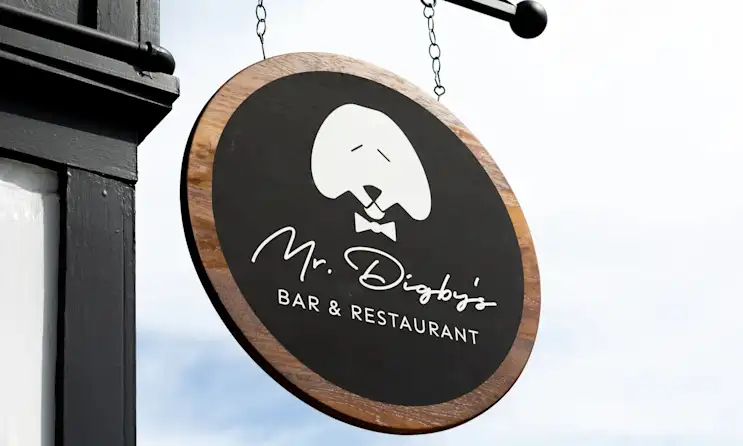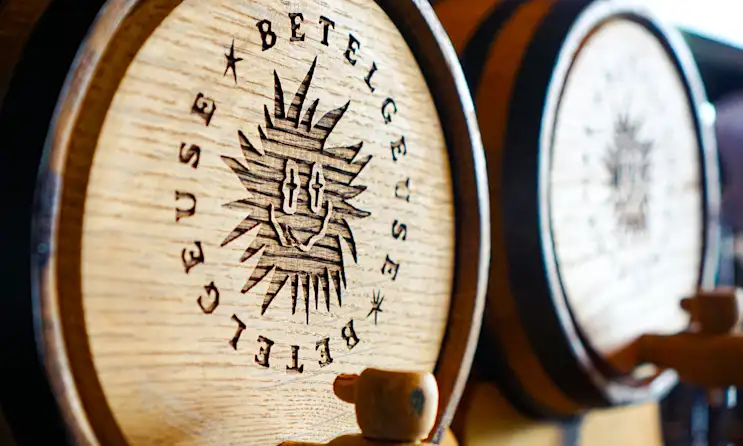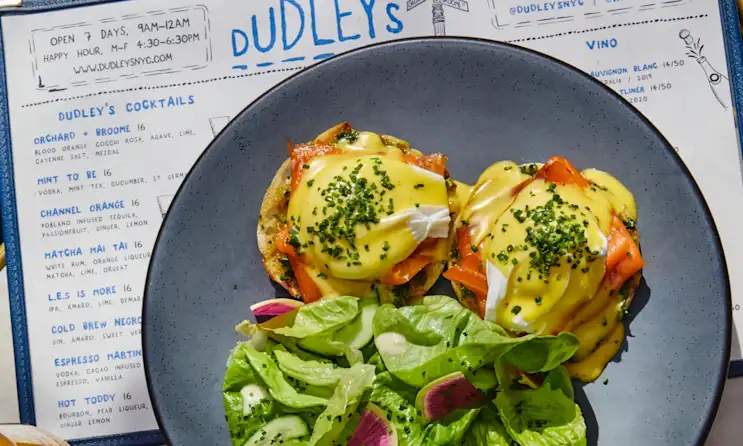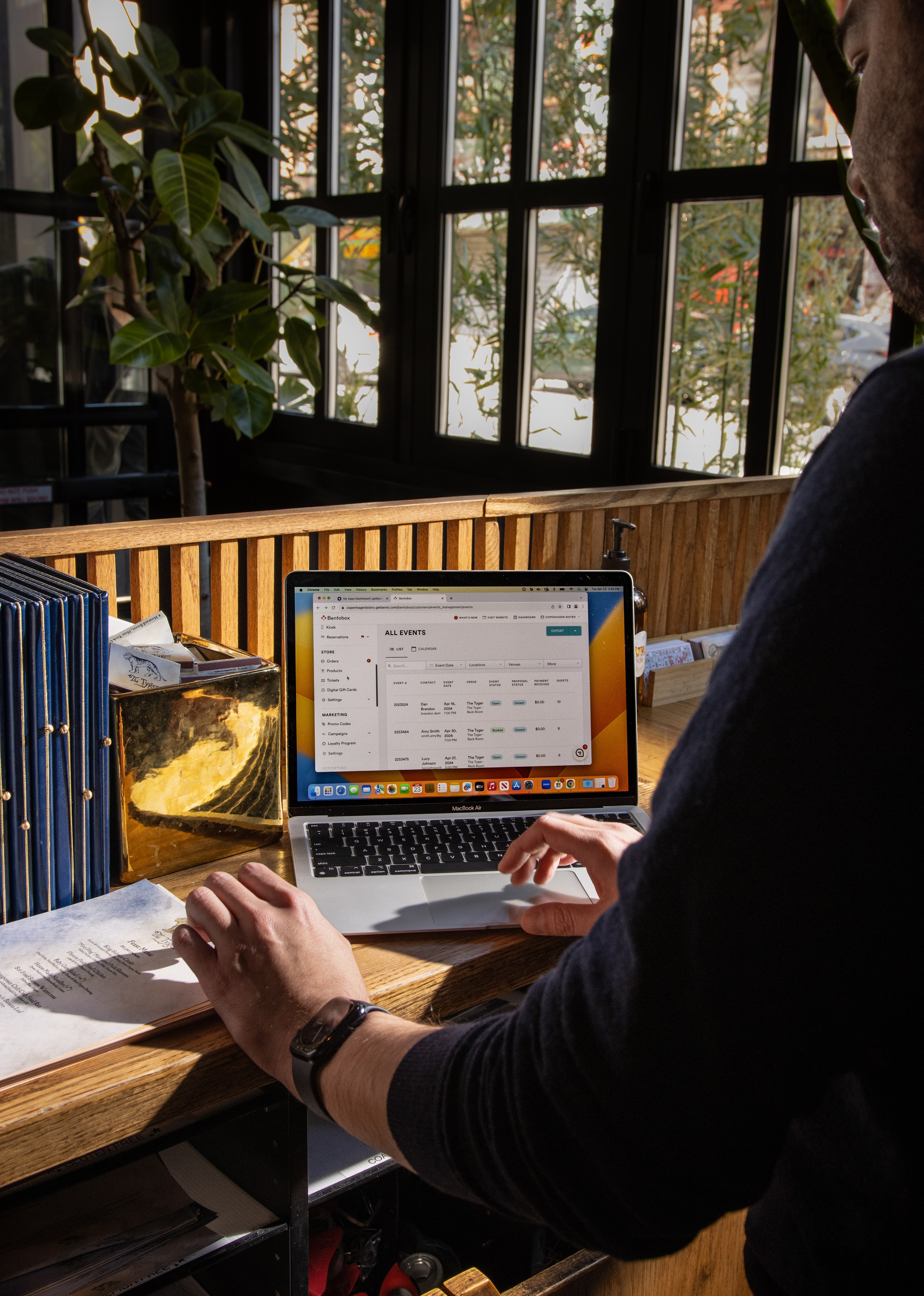New Openings
How to Get a Liquor License in Florida
August 2, 2022
Selling alcohol in the Sunshine State? Learn which liquor license to apply for and the keys to selling responsibly.
Disclaimer: This information is not intended to be legal advice. Contact your attorney or state authority if you have questions about compliance. Last Updated: July 2022
If you want to sell alcoholic beverages in the state of Florida, look to the Division of Alcoholic Beverages & Tobacco under the Department of Business and Professional Regulation (DBPR). DBPR oversees the issuing of licenses and permits along with ensuring compliance, managing inspections and collecting fees for 67 counties.
The liquor licensing landscape includes decoding the 40+ types of licenses and understanding which one is the correct choice. Requirements can be confusing, complicated and occasionally unachievable — especially for restaurants who can’t meet the minimum seating specifications.
Luckily, you’ve come to the right place to unpack all you need to know about securing a liquor license in the Sunshine State.
Types of Liquor Licenses
Florida has many types of liquor licenses. In fact, this PDF document has 25 pages of information about them. It can be overwhelming to weed through all of the details.
As a restaurant, you’re looking for the Special Food Service Establishment (SFS) license on page three, which allows the sale of beer, wine and liquor. There are four types: 8COP, 7COP, 6COP, 5COP and 4COP. COP stands for Consumption on Premises, and the number correlates with your county’s population.
Look below to see which type you need:
County population is over 100,000 = 4COP license
County population is between 75,000 and 100,000 = 5COP license
County population is between 50,000 and 75,000 = 6COP license
County population is between 25,000 and 50,000 = 7COP license
County population is less than 25,000 = 8COP license
To qualify for a Special Food Service Establishment (SFS) license — no matter what COP type — you need to meet the following requirements:
At least 2,500 square feet of service area.
Equipped to serve meals to 150 persons at one time.
Derive at least 51% of gross food and beverage revenue from the sale of food and nonalcoholic beverages.
If you don’t meet the qualifications, you’ll need to enter the quota lottery system. Quota beverage licenses are free from many of the restrictions of direct application licenses. However, they are extremely difficult to obtain.
Quotas are determined on a county-by-county basis with one license issued for every 7,500 people in a county. The quotas are adjusted annually, and if the population grows, new licenses will be released for bidding. Set realistic expectations: the chances of securing a liquor license this way are slim. In 2020, 62 available licenses received nearly 24,000 qualified entries.

RESOURCE
The Miami Restaurant Worker Report
Learn how Miami's restaurant workforce is growing and how to attract more workers.
How to Apply for a Liquor License in Florida
Ready to apply? After you’ve read through the different types of licenses and determined if you meet the criteria, you’ll either apply directly for a license or enter the lottery system to secure a quota license. We’ll walk you through both scenarios below.
1. Visit DPBR’s Application Center
There’s a three-step process for getting a liquor license: submit an application, undergo review and get approved.
To get started, visit the Application Center for a full list of forms. Submit your application through Online Services or mail/drop off a printed version to your local district office.
Here’s what you should gather to complete your application:
Completed Form
Federal Employer's Identification Number
Health Approval
Zoning Approval
Department of Revenue Clearance
Related Party Personal Information
Registration with Division of Corporations
Right of Occupancy Service Agreements
Management Contracts
Partner, Officer or Stockholder Information
Sketch of Premises
Fingerprints
2. Alternatively, enter the quota lottery
If you don’t meet the requirements to apply for a license (outlined in the previous section), you can try to get a quota liquor license. The drawing entry period begins the third Monday in August each year and lasts for 45 days. There’s a $100 nonrefundable entry fee for the license drawing. Winners of the drawing earn the right to apply for a quota license.
3. Plan for processing to take 90 days
It likely won’t take a full 90 days for your application to be processed, but the time required to review is dependent on the complexity and accuracy of your application. The Division of Alcoholic Beverages & Tobacco is required to process an application within 90 days of receipt, so budget that amount of time.
How Much Does a Florida Liquor License Cost?
The cost of a liquor license depends on the population count of your county. Annual fees for Consumption on Premises (COP) licenses for restaurants are as follows:
4COP = $1,820
5COP = $1,560
6COP = $1,300
7COP = $858
8COP = $624
Quota licenses can range in pricing. They’re sold on the open market and pricing is not set by the State. Costs can range from a few thousand dollars to over $400,000. Additionally, there’s a one-time Hughes Act fee of $10,750 that helps fund alcohol and drug abuse education, treatment and prevention programs.

RESOURCE
How to Open a Restaurant [Free Guide]
A step-by-step guide to planning, financing, staffing, stocking and marketing a new restaurant for its debut.
What to Do to Keep Your Liquor License
Wondering how to make sure you stay in good standing once you’ve received your liquor license. Use the steps below as guidelines.
1. Train team members on responsible alcohol service
Florida doesn’t require alcohol training for restaurants, but the state offers mitigation benefits for violations if you participate in the Responsible Vendor Program. You can receive training through programs like ServSafe, TIPS or 360 Training. For complete details, visit here.
2. Post recommended signage
Although not required, it’s highly encouraged to post signs on your premises that remind patrons that the purchase of alcoholic beverages by those under 21 is illegal. Under the Responsible Vendor Act, establishments must have signage posted in order to receive mitigation benefits.
3. Remember to renew your license
Each September, you’ll pay an annual fee to renew your license. As you’ll recall, the cost for annual renewals is dependent on the population size of your county. It will range from $624 to $1,820. You can manage your license through DBPR Online Services.
Additional Resources for Florida Restaurants
Quick Links
Recommended

New Openings
The Ultimate Guide to Restaurant Name Ideas
July 13, 2022
What’s in a name? A lot of brainstorming, sweat and tears. Learn how to create a great restaurant name.

Marketing
22 Best Restaurant Logos to Inspire Your Design
January 11, 2023
Take a look at successful restaurant logo examples, and read about why they work.

New Openings
Restaurant Branding: From Dish Names to Interior Design
July 6, 2023
A guide to creating a strong restaurant brand that attracts and retains diners.

